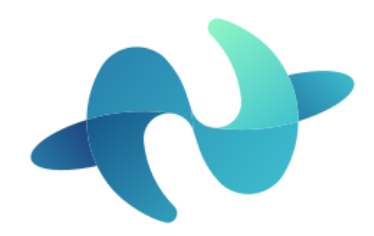C# Programming 101: The Basics

Welcome to the world of C# programming! Whether you’re a high school student, a homeschooler, or a parent looking to understand this modern programming language, you’re in the right place. C# is a versatile, high-level language used for a variety of applications, from game development to enterprise software. Let’s dive into the fundamentals of C# and explore its capabilities.
What is C# Programming Language?
C# (pronounced “C-sharp”) is a modern, object-oriented programming language developed by Microsoft as part of its .NET initiative. It was created to provide a comprehensive tool for building applications that run on the .NET framework. C# is known for its simplicity, power, and versatility, making it a popular choice for developers worldwide.
What is C# Used For?
C# is used in many areas, including desktop applications, mobile apps (through Xamarin), game development (especially with the Unity game engine), and web applications (using ASP.NET). Its robust framework supports a range of applications from simple to complex.
Design Goals for C#
When designing C#, Microsoft had specific goals in mind:
- Simplicity: To provide a language that is easy to learn and use.
- Modern: Incorporate features from modern programming languages.
- Object-Oriented: Facilitate scalable and maintainable code.
- Type Safety: Ensure that objects are strictly defined and used correctly.
- Performance: Efficient execution of programs.
- Interoperability: Seamless integration with other languages and systems.
Brief History of C# Programming
C# was developed in the late 1990s by a team led by Anders Hejlsberg at Microsoft. The language was officially launched in 2000 alongside the .NET framework. Since then, it has undergone numerous updates and enhancements, making it one of the most modern programming languages in use today.
Core Syntax of the C# Language
The syntax of C# is similar to other C-like languages such as Java and C++. It’s characterized by the use of semicolons to terminate statements, curly braces to group code, and keywords such as if, for, while, class, and public. A basic understanding of these elements is essential for anyone starting with C#.
Distinguishing Features of C# Programming
- Portability: C# programs can run on different platforms, including Windows, Linux, and macOS, thanks to the .NET framework.
- Typing: It supports both static and dynamic types, providing flexibility and safety.
- Metaprogramming: C# allows for code that can produce or alter other code, making it highly dynamic.
- Methods and Functions: C# provides extensive support for robust methods and function implementations.
- Memory Access: Automated memory management and garbage collection.
- Polymorphism: Supports both compile-time and runtime polymorphism.
- Language Integrated Query (LINQ): A powerful feature that allows querying directly within the language.
Implementations of C# Programming
C# finds its implementation in:
- Web Applications: Using ASP.NET for dynamic websites.
- Desktop Applications: For Windows-based software.
- Mobile Apps: Through Xamarin for cross-platform mobile development.
- Game Development: Predominantly with the Unity Engine.
- Cloud-Based Services: In Azure and other cloud platforms.
Top Uses with Examples
- Game Development: Building games with Unity, like “Cuphead” and “Hollow Knight”.
- Mobile Apps: Xamarin-based apps like “Olo”.
- Enterprise Software: ERP systems and business intelligence tools.
Scalability, Security, and Real-Time Collaboration
C# offers excellent scalability options, robust security features, and supports real-time collaboration, essential for modern application development.
School or Homeschool Learning Ideas
- Hello World! – Start with the classic “Hello World” program in C#, showcasing how to print a simple message to the console, emphasizing the importance of syntax and structure in programming.
- Data Types Dive – Dive into data types in C#, covering integers, floats, strings, and booleans, with real-world examples like storing user input in variables or performing calculations with numeric data types.
- Control Flow Concepts – Introduce control flow concepts such as if statements, loops, and switch statements, demonstrating how to make decisions and iterate through code, with real-world examples like creating a simple calculator or implementing a game logic.
- Object-Oriented Programming Primer – Provide an overview of object-oriented programming (OOP) principles in C#, including classes, objects, inheritance, and polymorphism, with real-world examples like modeling a car object or creating a banking system with multiple account types.
- Exception Handling Adventure – Explore exception handling in C#, teaching students how to handle errors and unexpected behavior gracefully, with real-world examples like handling file I/O errors or network connection issues in a web application.
What Our Children Need to Know
- Developing Simple Games: Using Unity and C# to create interactive experiences.
- Building Mobile Apps: Understanding the basics of mobile app development.
- Web Development: Creating dynamic websites with ASP.NET.
- Solving Real-World Problems: Using C# to address challenges in their community.
- Learning Object-Oriented Principles: Understanding the core of modern programming.
The Big Questions
- How can C# be used to solve environmental challenges?
- What makes C# suitable for beginners in programming?
- How does C# empower developers in the gaming industry?
- In what ways can C# be introduced in high school curricula?
- What future innovations can we expect from C#?





Responses